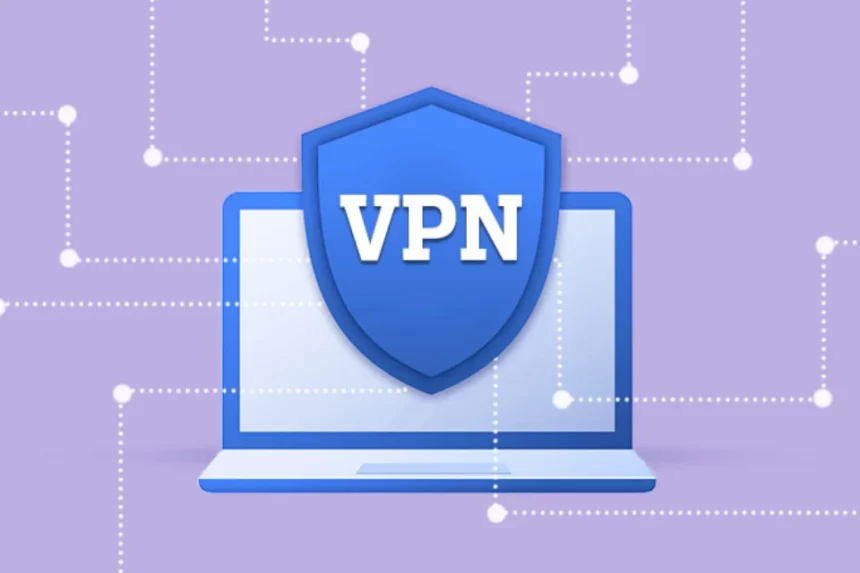Virtual private networks (VPNs) have become a tool that can not be neglected for both consumers and businesses alike. In the digital world, a VPN provides privacy and cybersecurity protection and is a reliable solution when someone is worried about protecting their online activity from intruders. Without a good VPN, getting access to your personal data is very easy for someone like the hackers or the authorities. So you need to secure your connection every time you are surfing the internet.
VPN service providers offer specially designed VPN for Linux users, may it be Linux Ubuntu, Debian, Fedora or any other Linux operating system. VPN for Linux also comes specifically for 32-bit and 64-bit operating systems. Linux users could feel as secure as any other operating system with VPNs for Linux.
What are the basics of VPN?
Through a virtual private network (VPN), one creates a safe, encrypted connection over a network that is not as secure, usually the Internet. VPN provides a virtual encrypted tunnel for the data between the device and a VPN provider’s remote server. The internet traffic or the user data goes through this encrypted tunnel when you connect to a VPN server, safeguarding and hiding it from unwanted parties like hackers and government authorities.
Why use a VPN at all?
How would you feel if someone could track your real life and how you are living it? You would feel harassed and uncomfortable obviously. How would you feel if there were no locks in your house and anybody could barge in anytime they want? Not good right? Well, in reality, this is the current state of most people’s digital lives. Using VPN is like locking your door which hackers could not pick. VPN encrypts every binary data of your internet traffic so that unauthorised parties could not monitor or keep an eye on your online activities, including your browsing history, downloads, and communications.
VPN enables its users to eliminate countrywide restrictions imposed by content providers or authorities censorship, allowing you access to region-locked websites, streaming services, and online platforms.
Wi-Fi networks in cafes, airports, or hotels are the most unsecured internet connections in the world. But by using a VPN you ensure that your data remains protected from potential eavesdroppers and thieves.
How to Pick the Right VPN for Linux?
Linux users are lucky to have a wide range of VPN clients readily accessible ranging from proprietary software to open-source options. Consider the following factors while selecting a VPN for Linux:
- In this process, the very first step is to verify whether your Linux distribution is compatible with the VPN client you select or not. It is not going to help anyone if the Linux and the VPN you chose are not compatible. The vast majority of VPN service providers provide specialised clients for widely used operating systems like Fedora, Ubuntu, Debian, and CentOS.
- The second step is to seek out a VPN client with an easy-to-use interface and a straightforward setup routine. If you like writing commands, for advanced configurations go for command line interfaces but if you like clicking and graphical methods choose simple interfaces.
- This step is for advanced users, so assess all the security features offered by your chosen VPN client, such as DNS leak protection, kill switch functionality, and split tunneling. These features enhance the privacy and security of your VPN connection multiple times.
- The performance and speed of the VPN client is also important. No one wants their internet connection to be slow. So check the number and location of available servers on the VPN website and then opt for a VPN provider with a large server network and high-speed connections to ensure the desired performance.
- The following is preferably one of the most important steps. So, review the VPN provider’s privacy policy with care to ensure that VPN providers adhere to strict privacy standards and do not collect or store your sensitive user data because if they do then it will defeat the whole purpose of using VPN.
How to Configure VPN for Linux?
After you’ve selected a VPN client that meets your requirements, it is time to configure the VPN on your Linux system. The steps to configure VPN for Linux are provided with the VPN when you create the account or sign up. The steps generally include:
Begin by installing the VPN client software on your Linux system. Most VPN providers offer installation instructions and packages tailored to specific distributions, simplifying the setup process.
Now install the VPN client software on your Linux system. Most VPN providers offer installation instructions and packages tailored to specific distributions, simplifying the setup process. This will be followed by obtaining the necessary configuration files or settings from your VPN provider. These files typically include server addresses, authentication credentials, and encryption settings. Do not worry as sometimes you may need to enter the server details manually or import the configuration files directly, but all the details will be provided by the VPN provider.
The final step is to enter your VPN credentials created by you when signing up for the VPN provider. Just initiate the connection to the VPN server of your liking. Once you have completed all the steps your data will be encrypted and routed through the secured VPN tunnel.
ExpressVPN: The Best VPN for Linux
The best VPN for Linux Ubuntu is ExpressVPN. ExpressVPN servers are located in 105 countries providing you the option for your IP address to belong to any one of the 105 countries. ExpressVPN for Linux provides efficient internet speed and increased anonymity. ExpressVPN supports live chats for any trouble you are having regarding its VPN. ExpressVPN client for Debian Linux, Linux Mint and Arch and so many more are exclusively available on the ExpressVPN website.
For more information visit, ExpressVPN’s website today!
Conclusion
For Linux users seeking to protect their personal information on the internet at a time when worries about online privacy, security, and censorship are on the rise, VPNs provide an essential extra layer of security. You can enjoy improved privacy, unlimited access to online material, and peace of mind when browsing the web by knowing the basics of VPN technology, choosing the best VPN software, and configuring it on your Linux system. Using the power of VPN for Linux gives up a world of options for private and secure internet connectivity, regardless of experience level with the operating system. Know more on ExpressVPN’s website.
To read more about the digital world and the ongoing trends, visit TheWebHunting.
FAQs








